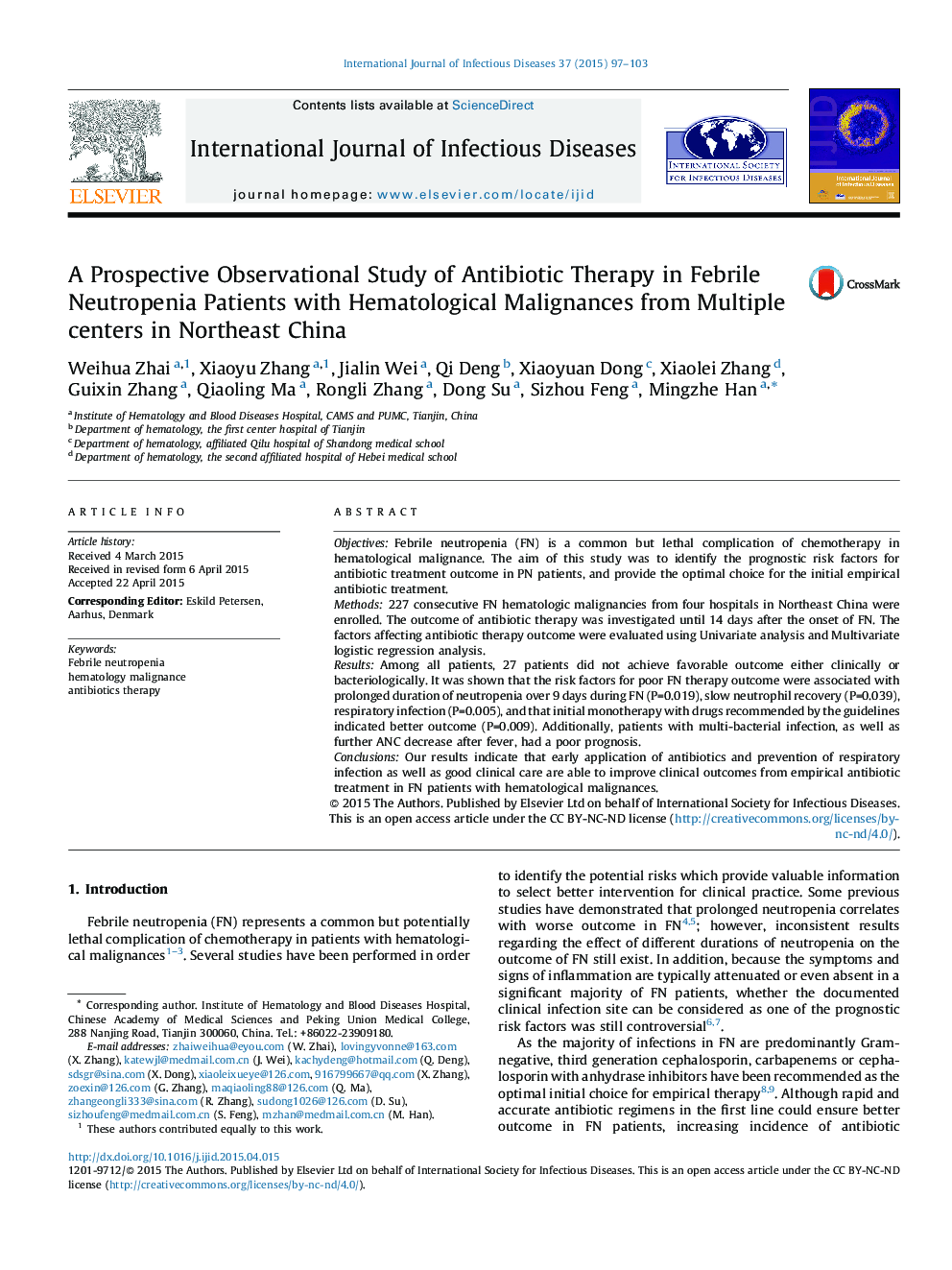| کد مقاله | کد نشریه | سال انتشار | مقاله انگلیسی | نسخه تمام متن |
|---|---|---|---|---|
| 3362112 | 1592058 | 2015 | 7 صفحه PDF | دانلود رایگان |
• FN Patients with respiratory infection had worse outcomes from antibiotic treatment.
• Monotherapy with empirical drugs was effective as the optimal initial choice.
• The period of neutropenia after fever over 9 days was a predictor of unfavorable outcome.
• Early recovery of ANC counts also indicates better outcome.
• The patients with multi-bacterial infection had poor antibiotic treatment outcome.
• Standard operation could reduce catheter-related infection.
ObjectivesFebrile neutropenia (FN) is a common but lethal complication of chemotherapy in hematological malignance. The aim of this study was to identify the prognostic risk factors for antibiotic treatment outcome in PN patients, and provide the optimal choice for the initial empirical antibiotic treatment.Methods227 consecutive FN hematologic malignancies from four hospitals in Northeast China were enrolled. The outcome of antibiotic therapy was investigated until 14 days after the onset of FN. The factors affecting antibiotic therapy outcome were evaluated using Univariate analysis and Multivariate logistic regression analysis.ResultsAmong all patients, 27 patients did not achieve favorable outcome either clinically or bacteriologically. It was shown that the risk factors for poor FN therapy outcome were associated with prolonged duration of neutropenia over 9 days during FN (P=0.019), slow neutrophil recovery (P=0.039), respiratory infection (P=0.005), and that initial monotherapy with drugs recommended by the guidelines indicated better outcome (P=0.009). Additionally, patients with multi-bacterial infection, as well as further ANC decrease after fever, had a poor prognosis.ConclusionsOur results indicate that early application of antibiotics and prevention of respiratory infection as well as good clinical care are able to improve clinical outcomes from empirical antibiotic treatment in FN patients with hematological malignances.
Journal: International Journal of Infectious Diseases - Volume 37, August 2015, Pages 97–103
